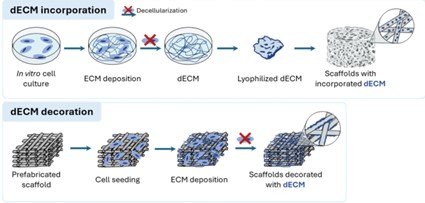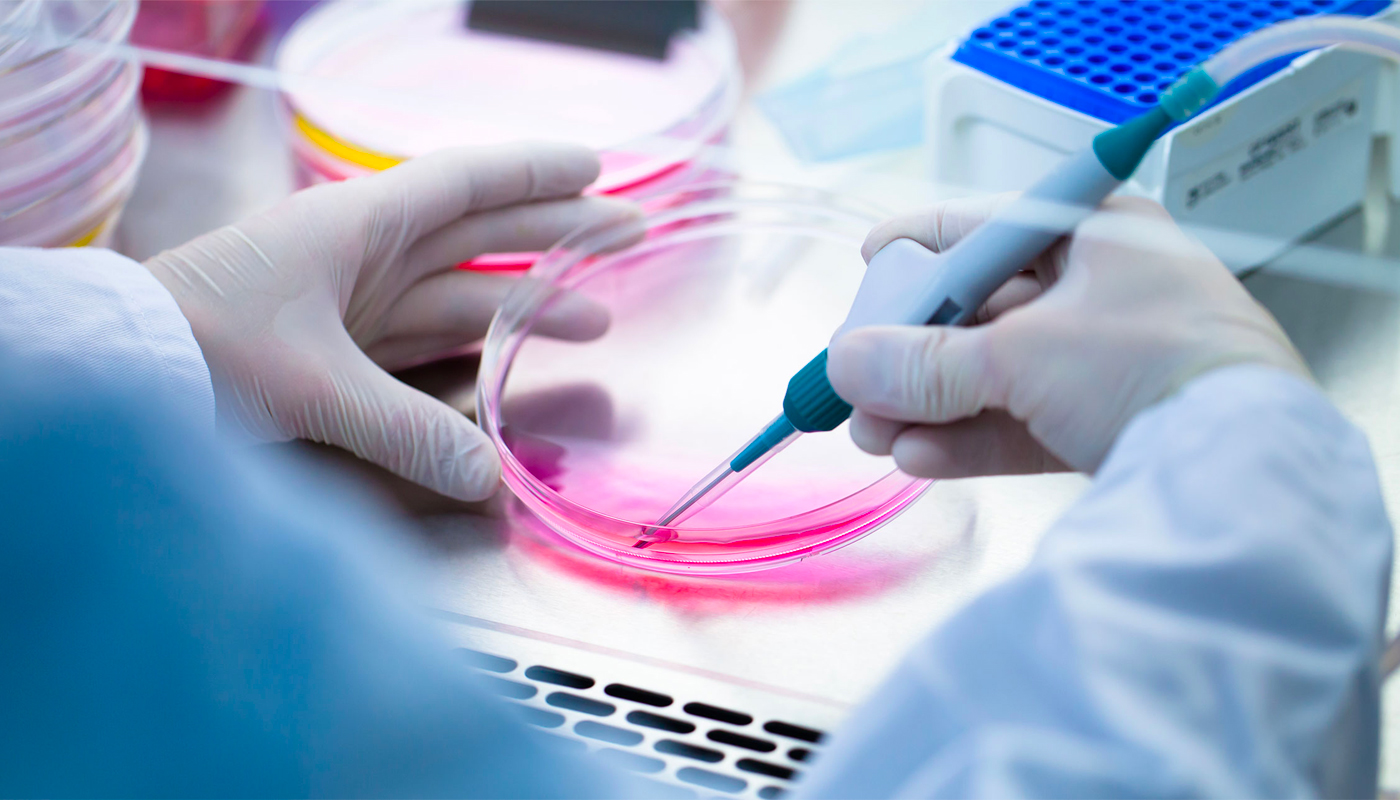Synthetic scaffolds functionalized with mesenchymal stem/stromal cells-derived extracellular matrix for bone tissue engineering: a review

Cell-derived decellularized extracellular matrix (dECM), particularly from mesenchymal stem/stromal cells (MSCs), is among the most promising biomaterials for bone tissue engineering (BTE), as it closely mimics the composition of native bone ECM and provides immunomodulatory and trophic molecules that support bone regeneration. However, dECM's mechanical properties are often insufficient, requiring its combination with synthetic polymers to improve scaffold strength and structural integrity, critical to support hard tissues such as bone.
In a recent review published in the journal RSC Advances, former SCERG-iBB members Margarida Domingues and Marta Carvalho together with iBB/DBE members Paola Alberte and João Carlos Silva, discussed the potential of MSC-dECM composite scaffolds for BTE, including 3D printed constructs, electrospun fibrous matrices, hydrogels and metallic scaffolds. The authors summarized the more recent studies and described how the incorporation of MSC-dECM enhances the osteoconductive and osteoinductive properties of the scaffolds, leading to increased bone formation both in in vitro and in vivo settings. Finally, the review addresses the current challenges and future directions in advancing the application of MSC-dECM-enriched scaffolds towards clinically effective bone repair strategies. This work was developed under the scope of the FCT project “InSilico4OCReg” (PTDC/EME-SIS/0838/2021). See more.
